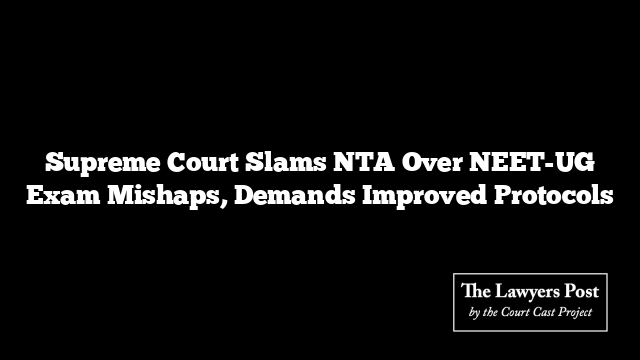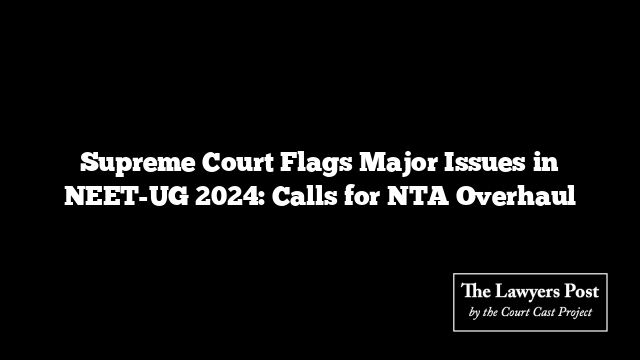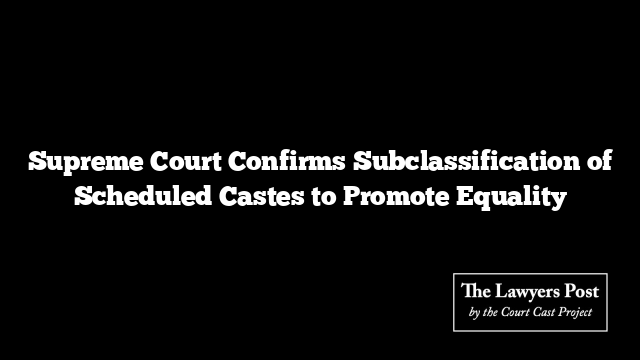On August 2, the Supreme Court delivered a stern rebuke to the National Testing Agency (NTA) over its handling of the NEET-UG 2024 examination, criticizing the agency for its inconsistent and problematic management.
The Court’s detailed judgment addressed the issues surrounding the May 5 exam, which had faced scrutiny due to paper leaks and other irregularities. Despite the Court’s decision on July 23 to uphold the exam’s validity, it identified significant lapses in NTA’s processes.
Court Highlights NTA’s Security Failures
The Court noted that the paper leak incidents occurred in Patna and Hazaribagh, where security breaches allowed unauthorized access to question papers. Instances of papers being transported in e-rickshaws and issues with the sealing of OMR sheets further highlighted NTA’s inadequate security measures.
The Court also criticized NTA’s reliance on external invigilators and the distribution of incorrect question papers in twelve centers. NTA’s decision to retract grace marks awarded to students, and subsequent changes in the marking scheme, drew particular ire for causing confusion and unfair advantages.
New Directives for Exam Oversight
In response, the Court has mandated that NTA address all highlighted concerns, including revising security protocols and improving the exam process. An expert committee, established by the Union Government, is tasked with evaluating the security measures and recommending enhancements.
Key directives for the committee include:
- Establishing rigorous SOPs for exam registration, center changes, and OMR sheet management.
- Considering comprehensive CCTV monitoring and secure transportation methods.
- Enhancing identity verification procedures and exploring technological innovations to prevent impersonation.
The committee is expected to report by September 30, 2024, with the Ministry of Education to implement the recommendations and update the Court within two weeks of final decisions.
Impact and Future Measures
The Court emphasized that a re-examination would disrupt the academic schedule for over 23 lakh students and affect future medical education. The focus now is on ensuring that NTA’s practices align with standards that uphold the exam’s integrity and fairness.
The Supreme Court’s decision underscores the need for the NTA to adopt a more reliable and transparent approach in managing such high-stakes examinations, ensuring that all procedural improvements are implemented effectively to prevent future mishaps.





